H.E. Sheikha Mai bint Mohammed Al Khalifa, Bahrain Minister
Interview with H.E. Sheikha Mai bint Mohammed Al Khalifa, Minister of Culture & Information of Bahrain – Biography
Previously, there was no link between Bahrain tourism & Bahrain culture. Now we are trying to work as one unit to support each other.
In view of cultural openness and multiculturalism, is the balance between openness and cultural identity a concern for you?
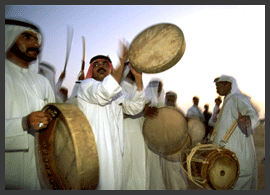 Bahrain has a unique culture, that goes back over 5,000 years. In this country and in this ministry, we forecast on culture and activities and we want to benefit from this unique heritage.
Bahrain has a unique culture, that goes back over 5,000 years. In this country and in this ministry, we forecast on culture and activities and we want to benefit from this unique heritage.
By promoting Bahrain through the culture we will be able to pass on the message and benefit from what we have.
Bahrain is an amazingly culturally rich destination, can you explain your future plans for 2009-2010?
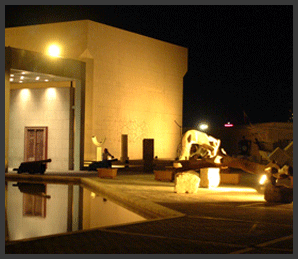 There is a lot of projects in process. The museum you visited last week is one of our projects and we managed to convince the private sector to support our project from A to Z and they were very generous.
There is a lot of projects in process. The museum you visited last week is one of our projects and we managed to convince the private sector to support our project from A to Z and they were very generous.
We have another museum in process and one of them will be for another important site at an old settlement.
We would like to build a research center that will be the original UNESCO center for the whole region and we are very proud of this and working very hard to make it happen. I hope that by 2011 we will open this museum if everything goes as planned.
What are the main difficulties to reach the level of UNESCO?
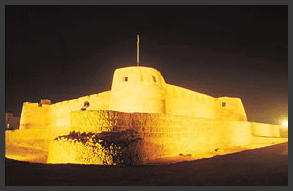 There are certain rules we have to follow. For example, for Bahrain Fort to be listed as a world heritage site it is important not because of the Fort, but the layers of different eras beginning from the first human generation up to the Islamic era.
There are certain rules we have to follow. For example, for Bahrain Fort to be listed as a world heritage site it is important not because of the Fort, but the layers of different eras beginning from the first human generation up to the Islamic era.
We have to protect the site from reclamation and we have been working very hard to do this. We managed to do the important things up until now and I hope in the future we will be able to protect other sites to be listed as a world heritage site as well.
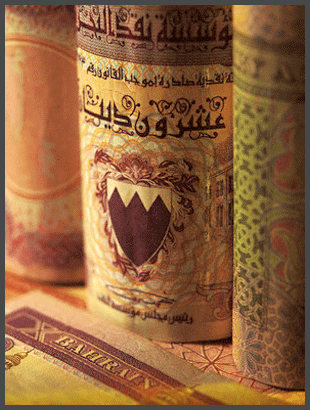 Bahrain has a very rich culture dating back to 3,000 BC, can you explain the meaning of the culture and the history of Bahrain?
Bahrain has a very rich culture dating back to 3,000 BC, can you explain the meaning of the culture and the history of Bahrain?
Bahrain is unique and when we talk about human civilization we can learn a lot by reading through the seals and by reading them we can learn how people looked like and how they used to live.
In Bahrain we can benefit from this project and pass the information and a message to the younger generations that our identity is really important.
Maybe this unique culture is not part of our culture now but part of our identity.
How do you want to pass this message to younger generations who may be focusing on other things?
Awareness is very important it’s our fault that as of right now we haven’t passed on the message. Through the TV and news paper we can pass on the message but for the past few years no one has focused on the culture of Bahrain.
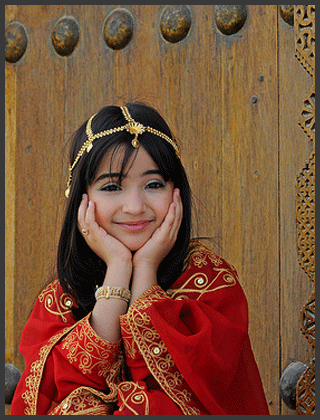 For some people it was a luxury and not a must but now we encourage people to visit the sites and learn more about their own history and be proud of this history.
For some people it was a luxury and not a must but now we encourage people to visit the sites and learn more about their own history and be proud of this history.
Our goal is the youth and we try to attract them by arranging cultural activities and during them we arrange a four day festival for new people to come to the site museum and learn about the site as well as present their work. Musicians and artists join us and there is a link between them and the site now because we encouraged them to come and see the museum.
We have had workshops, art exhibitions, and photo exhibition and it was clear for them if they participate they can have the right tools to pass on the message and people will believe in our message and encourage other generations to come to the site and learn about their history.
Bahrain has spent more than 100 million dollars to position itself as the cultural capital of The Gulf and to attract more tourists from the region and beyond. You are also working on a number of large scale architectural projects can you give us an overview of these projects and explain how they will change Bahrain?
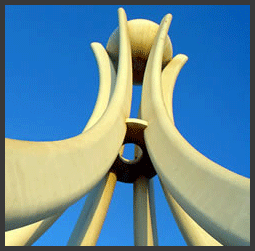 For example the national theatre is a must for Bahrain. In the 30s or 20s there was a movement in Bahrain and it was a pity not to have a proper theatre and we are late. We started to build the theatre with French architecture and I hope by 2011 it will be ready. The pearl heritage trail is very important because it will talk about the history of this important industry that before the 30s was the most important industry in the region. Lastly, another site museum will be built.
For example the national theatre is a must for Bahrain. In the 30s or 20s there was a movement in Bahrain and it was a pity not to have a proper theatre and we are late. We started to build the theatre with French architecture and I hope by 2011 it will be ready. The pearl heritage trail is very important because it will talk about the history of this important industry that before the 30s was the most important industry in the region. Lastly, another site museum will be built.
What are your main goals and what are your main strategies in the ministry? What are you working on most at the moment?
In this Ministry the most important sectors are culture & heritage, tourism, media & broadcasting. I want these three sectors to work together. Previously, there was no link between tourism and culture and that was wrong but they should work together to promote activities. Now we are trying to work as one unit to support each other and we are working very fast.
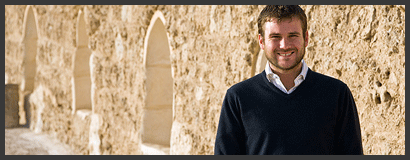
The media have also an important role and they need to understand the importance of helping to promote the culture of Bahrain. By working as a team, we can meet these goals. We have to continue to prepare and arrange for this event. We are waiting for the World Heritage Committee to come to Bahrain in 2011 and we have to continue to prepare and arrange for this event in a very short amount of time.
What is the meaning of the event for Bahrain?
The whole world will focus on Bahrain during the time of this conference. For ten days Bahrain will be the focus of the media and important news will come from Bahrain. It is a great opportunity for Bahrain to promote what we have. It has been almost fourteen years since anyone in the Arab world has hosted the World Heritage Committee.
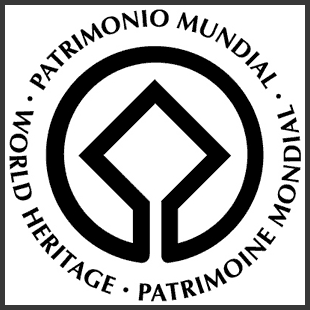 In 2010 it will be hosted in Brazil and one thing we will share with Brazil will be that the regional center for UNESCO will be in Bahrain and the regional center for Latin America will be in Brazil. There are only a few places in the world like this and this is very important center and we are happy and proud to manage to have convinced the committee to accept this project. I think in this area in the field of archaeology it is very real.
In 2010 it will be hosted in Brazil and one thing we will share with Brazil will be that the regional center for UNESCO will be in Bahrain and the regional center for Latin America will be in Brazil. There are only a few places in the world like this and this is very important center and we are happy and proud to manage to have convinced the committee to accept this project. I think in this area in the field of archaeology it is very real.
No one encourages students to study archaeology and heritage but by establishing this center in Bahrain we can pass on the message to train the people and get students to join us to continue not only for Bahrain. This project is in process and will be located in Saar.
It will take time to build the museum and we have to start as soon as possible; to start we are looking for original old houses to renovate and use as offices for this project. The directors and employees will all be there and the original center will be located in the same place.
Aside from the cultural aspect, what other aspects of tourism are part of your vision?
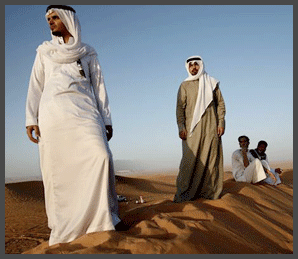 To attract tourism, we have to be ready. Right now we are not ready and the infrastructure isn’t where we need it to be.
To attract tourism, we have to be ready. Right now we are not ready and the infrastructure isn’t where we need it to be.
There is a new festival for this year that will be called The Bahrain Summer Festival and again there will be cultural activities, workshops, and other things.
If we manage to attract people from the region to come to Bahrain from time to time, in the future we are looking to attract cultural tourism to visit the unique places in Bahrain and I think that will be very special.
You mentioned that the infrastructure isn’t ready. What are the plans for the infrastructure? Do you plan to make any new beach or hotels or any kind of commercial innovations?
Yes, there are four boutique hotels and they will be very unique. Two of them will be in original buildings, one of Muharraq and one in Manama.
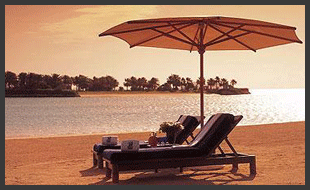 The first one is in a very unique building with a very Bahraini look and upgrading the hotel will attract many people. Another boutique hotel will be in Muharraq in a building that is over 100 years old and this small hotel will have a Bahraini restaurant and it will showcase the cuisine of Bahrain and the special dishes that aren’t offered elsewhere.
The first one is in a very unique building with a very Bahraini look and upgrading the hotel will attract many people. Another boutique hotel will be in Muharraq in a building that is over 100 years old and this small hotel will have a Bahraini restaurant and it will showcase the cuisine of Bahrain and the special dishes that aren’t offered elsewhere.
Next to it will we will have the House of Music which is another project in the private sector that will be very close to the hotels and it will create an identity that is different than the other Gulf States.
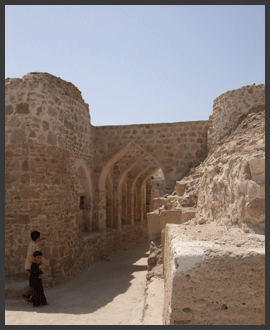 Other places in The Gulf have specific associations. What would you like Bahrain to be associated with when people from the US or Europe think of Bahrain?
Other places in The Gulf have specific associations. What would you like Bahrain to be associated with when people from the US or Europe think of Bahrain?
We complete each other. What happened in Dubai and Abu Dhabi is amazing but there is something different in Bahrain- you can notice the identity of Bahrain immediately. By touring all of the historical and cultural sites you will be able to see the flavor of The Gulf. There is no competition among the different areas but rather we complete each other. The Gulf is small and we are not far from each other.
How would you define that special something Bahrain has?
Traditional houses and historical sites, these are the two unique things we have to promote and focus on.
To finalize the interview, what is your final message to our audience? What is your vision and dream for Bahrain?
Due to the size of Bahrain you can control many things and if there is a vision you can create something very unique. If you focus on the buildings themselves we can use them to explain the history of places like the airport, for example.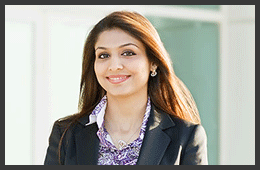
Many people aren’t aware of this kind of information. There is an area near Formula 1 where there is an oil well and by building a museum underground we can attract different kinds of people to Bahrain.
There is a lot to see in the streets and the hospitality of the people. Another example are traditional industries like the clay of Hali and this industry is 5,000 years old and we should give people an opportunity to have tourists come and see them work.